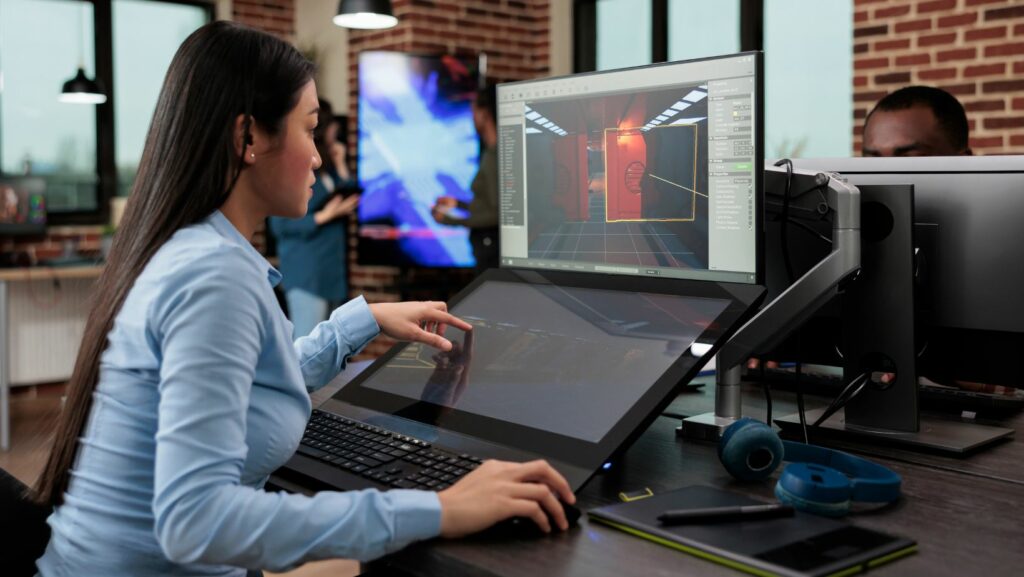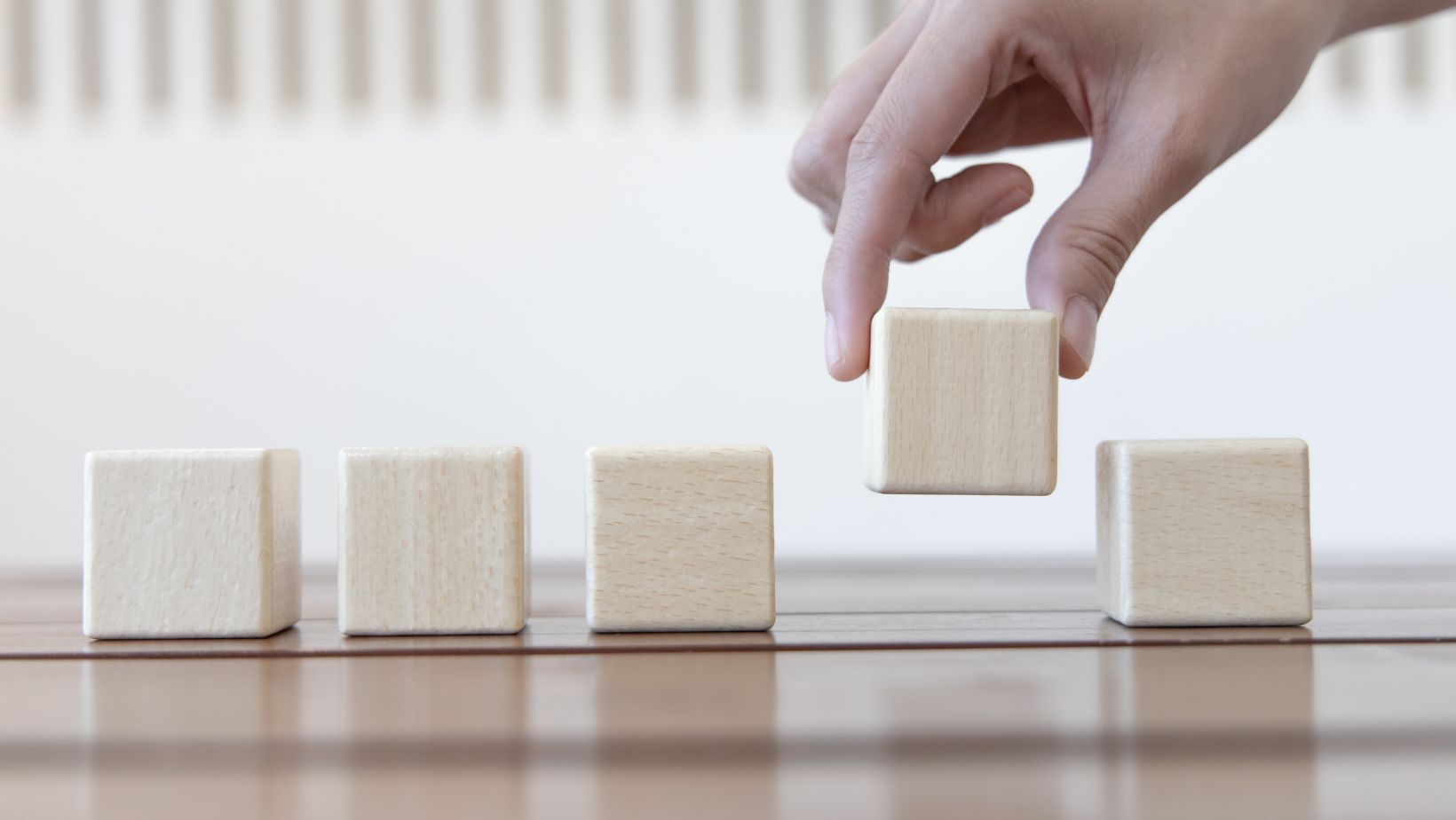Key Takeaways
- Definition and Purpose: Productivity games combine fun with focus, transforming routine tasks into engaging challenges aimed at enhancing efficiency and motivation.
- Increased Motivation: These games utilize rewards and progressive achievements to incentivize task completion, significantly boosting motivation levels.
- Enhanced Focus: Structured challenges in productivity games help reduce distractions and improve concentration, fostering a focused work environment.
- Variety of Formats: Productivity games come in multiple forms, including mobile apps and desktop applications, each tailored to fit different preferences and work settings.
- Personalized Approach: Selecting the right productivity game should align with individual goals and preferred game mechanics to maximize effectiveness and enjoyment.
- Effective Strategies: Implementing techniques like setting time limits and incorporating regular breaks can further enhance productivity while engaging in these games.
In today’s fast-paced world, staying productive can feel like an uphill battle. With distractions lurking around every corner, finding effective ways to boost efficiency is crucial. Enter productivity games—an innovative approach that combines fun and focus, turning mundane tasks into engaging challenges.
These games not only enhance motivation but also foster a sense of achievement as players tackle their to-do lists. By integrating elements of play into daily routines, individuals can unlock their full potential while enjoying the journey. Whether at work or home, productivity games offer a refreshing twist on traditional time management techniques, making productivity feel less like a chore and more like an adventure.
Productivity Games
Productivity games are structured activities designed to enhance focus and efficiency while completing tasks. These games utilize incentives, challenges, and playful elements to motivate individuals. By turning ordinary tasks into engaging experiences, productivity games help combat distractions and foster a sense of achievement.
Typically, productivity games involve setting specific goals, tracking progress, and rewarding milestones. Popular examples include the Pomodoro Technique, which entails working for 25 minutes followed by a 5-minute break, and gamified productivity apps that allow users to earn points or levels for task completion.
Productivity games can take various forms, such as solo challenges, team competitions, or digital applications. They adapt to individual preferences and work environments, offering personalized solutions to improving productivity.
Benefits of Productivity Games
Productivity games offer numerous advantages that significantly enhance efficiency and effectiveness in task completion. These benefits directly contribute to improved work performance and a more fulfilling approach to daily responsibilities.
Increased Motivation
Increased motivation emerges as one of the primary benefits of productivity games. Participants engage more readily when tasks incorporate fun elements, driving a willingness to complete work. Games often utilize rewards such as points, levels, or badges, further incentivizing individuals to achieve specific goals. For instance, gamified apps encourage users to excel by providing visual representations of progress. A study by the University of California found that gamification can boost productivity by up to 30%, highlighting its transformative impact on motivation levels.

Enhanced Focus and Concentration
Enhanced focus and concentration result from the structured challenges inherent in productivity games. These games force individuals to prioritize tasks and minimize distractions. By setting time limits or specific objectives, players cultivate a more intense focus on the task at hand. Techniques like the Pomodoro Technique create an environment conducive to heightened concentration, as participants commit to short bursts of uninterrupted work followed by brief breaks. Research shows that time-blocking methods can improve concentration by 25%, showcasing the effectiveness of productivity games in fostering a focused work environment.
Types of Productivity Games
Productivity games come in various forms, each catering to different preferences and environments. These categories enhance engagement and efficiency in task management.
Mobile Apps
Mobile apps offer convenient ways to integrate productivity games into daily routines. App examples include Forest, which encourages focus by growing virtual trees during work sessions, and Habitica, which gamifies daily tasks and habits, allowing users to earn rewards for achieving goals. These apps often feature customizable settings, enabling users to tailor their experience and make progress tracking straightforward. Engaging interfaces and motivational notifications keep users on track and committed to their productivity goals.
Desktop Applications
Desktop applications provide robust tools for productivity gaming on larger screens. Applications like Trello transform project management into a game-like experience, where users move tasks on boards while earning achievements for milestones. Another example, Focus@Will, uses music to enhance concentration and offers progress tracking features. Desktop applications often include collaboration options, allowing teams to engage in competitions or shared challenges. These platforms empower users to organize tasks efficiently while maintaining a sense of accomplishment through structured gameplay mechanics.
How to Choose the Right Productivity Game
Choosing the right productivity game involves aligning personal goals with engaging game mechanics. Understanding individual needs contributes to increased motivation and effectiveness in task completion.
Assessing Personal Goals
Assess personal goals before selecting a productivity game. Identify specific aspirations, such as increasing focus, managing time better, or enhancing collaboration. Break larger goals into manageable tasks that a game can motivate. For instance, someone aiming to write consistently may benefit from a game that tracks daily word counts. Individuals with varied interests should explore games tailored to different skill sets, ensuring alignment with personal objectives.
Considering Game Mechanics
Consider game mechanics that resonate with individual preferences. Evaluate elements such as rewards, challenges, and progress tracking. Games offering instant feedback and accomplishments can motivate consistent engagement. For example, platforms that provide points for completing tasks or leveling up can heighten enjoyment and commitment. Explore competitiveness versus collaboration, as some people thrive in team settings while others prefer solo play. Select games that fit seamlessly into routines and can adapt to different work environments, enhancing both enjoyment and productivity.
Tips for Maximizing Productivity with Games
To maximize productivity with games, individuals can implement effective strategies that enhance focus and engagement. Integrating structured techniques helps transform tasks into enjoyable challenges.
Setting Time Limits
Setting specific time limits boosts focus and efficiency. Individuals can utilize time management techniques such as the Pomodoro Technique, where tasks are broken into 25-minute intervals. This approach fosters urgency, encouraging quicker task completion. Additionally, individuals might set deadlines for each gaming session, creating a sense of responsibility. Creating short, timed bursts maintains high levels of motivation and prevents burnout during longer tasks.
Incorporating Breaks
Incorporating regular breaks enhances overall productivity while participating in productivity games. Scheduled breaks allow for mental recovery, promoting sustained focus when returning to tasks. Research indicates that short breaks, ideally 5-10 minutes after 25 minutes of work, improve concentration and creativity. Individuals can engage in physical activities or mindfulness exercises during these breaks, maximizing the refreshing effects. Including breaks as part of the game mechanics helps maintain momentum, ensuring the process remains enjoyable and less tedious.
Refreshing Approach to Tackling Daily Tasks
Productivity games offer a refreshing approach to tackling daily tasks. By blending fun with focus they transform mundane activities into engaging challenges. This innovative method not only boosts motivation but also fosters a sense of achievement that traditional productivity methods often lack.
As individuals explore various productivity games they can find the right fit for their personal goals and work environments. The flexibility and adaptability of these games make them suitable for anyone looking to enhance their efficiency. Embracing productivity games can lead to a more fulfilling and effective way of managing time and responsibilities.

